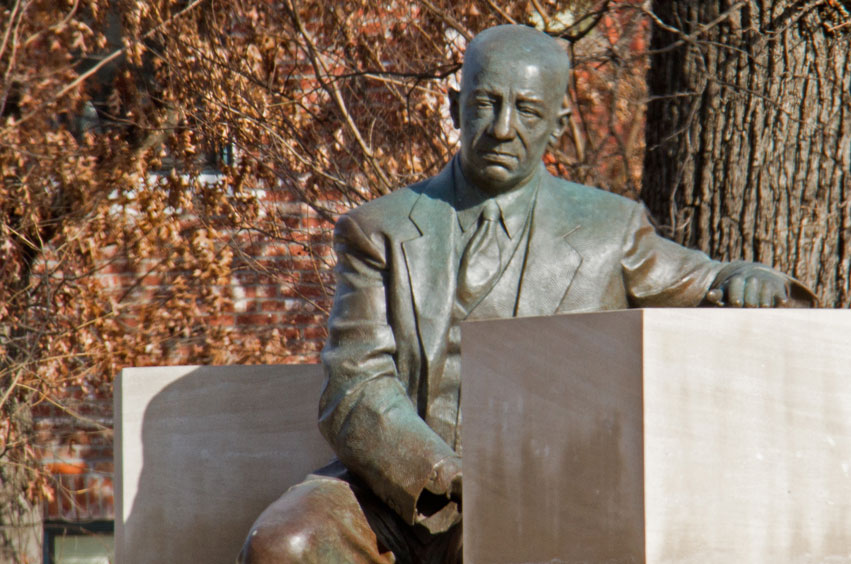The Legacy of Carter G. Woodson

As a child, my earliest memories of Black History month in school were laminated images on classroom bulletin boards of figures such as Dr. Martin Luther King Jr., Harriet Tubman, and Fredrick Douglass. What I did not know then, but would later understand, is that their accomplishments to the progress and equality of African Americans were not accurately portrayed in photos on a wall. And though King, Tubman, and Douglass bore pivotal roles in African Americans’ lives, other lesser-known influencers of the culture also attained success amid oppression.
Black history month is often celebrated by paying homage to the men and women who significantly contributed to the advancement of African Americans. While this theme is important, the celebration of Black history should also remind us that to understand our nation’s history, we must also consider the treatment and experiences of African Americans. When history is inclusive of the African American plight, it establishes a barometer of progress to assess how well our nation is living up to its creed that “life, liberty, and the pursuit of happiness” are unalienable rights.
Black history month was launched initially as Negro History week in 1926. While other authors and writers have contributed to the celebration and recognition of Black culture, none have been as instrumental as Carter G. Woodson. Known as the father of Black History, Woodson dedicated most of his life’s work to researching the lives of African Americans. The week, which would later extend to a month, complemented the growing Harlem renaissance movement, which reflected a distinct cultural expression of African Americans in art and literature.
Woodson would author several texts to tell African Americans’ history, one of the most prominent being, The Negro in Our History, which methodically portrayed African American history and life in America, an account often omitted from history books. Woodson believed that “if a race has no history, if it has no worthwhile tradition, it becomes a negligible factor in the thought of the world and stands in danger of being exterminated.” In addition to his texts, Woodson also founded the Association for the Study of African American Life and History, an active organization whose mission is to “promote, research, preserve, interpret and disseminate information about Black life, history and culture to the global community.”
Black history month became a framework to increase self-understanding and remind African Americans of their dignity. African Americans were highlighted as capable of success beyond the limits White society assigned. In its origins, the celebration of Black history recognized that African Americans deserved status, a theme that would energize the Civil Rights movement.
Today, Black history may be a tool to heal racial division and strengthen cultural intelligence by exploring our nation’s past complexities. The knowledge of such history provides added value as a method by which racial progress is assessed. One author remarked that “Woodson and his colleagues touted the significance of black history as a yardstick with which to measure our progress in fulfilling the American creed.” Through our knowledge of culture and history, we can hold accountable the systems which prevent the progress of not only African Americans, but other people of color.
Black history month is important because it honors African Americans’ personhood by celebrating the men and women who shape U.S. history. If we genuinely desire change, we must understand that we cannot accurately narrate the story of our nation’s past without acknowledging African Americans’ experiences and contributions. Nor can we hold accountable those systems and practices which impede progress towards racial equity and equality.
Sources:
The Association for the Study of African American Life and History. https://asalh.org/about-us/
Snyder, J. A. (2018). Making Black history: The color line, culture, and race in the age of Jim Crow. Athens, GA: University of Georgia Press.
Woodson, C. G., & Wesley, C. H. (1966). The Negro in our history (11th ed.). Washington, D. C.: Associated Publishers.
Dr. Tempress Asagba is Dean of Students and Chair of the Community Advocates for Racial Equality (CARE) Committee at Dallas Baptist University.
Dr. Tempress Asagba is Dean of Students and Chair of the Community Advocates for Racial Equality (CARE) Committee at Dallas Baptist University.








